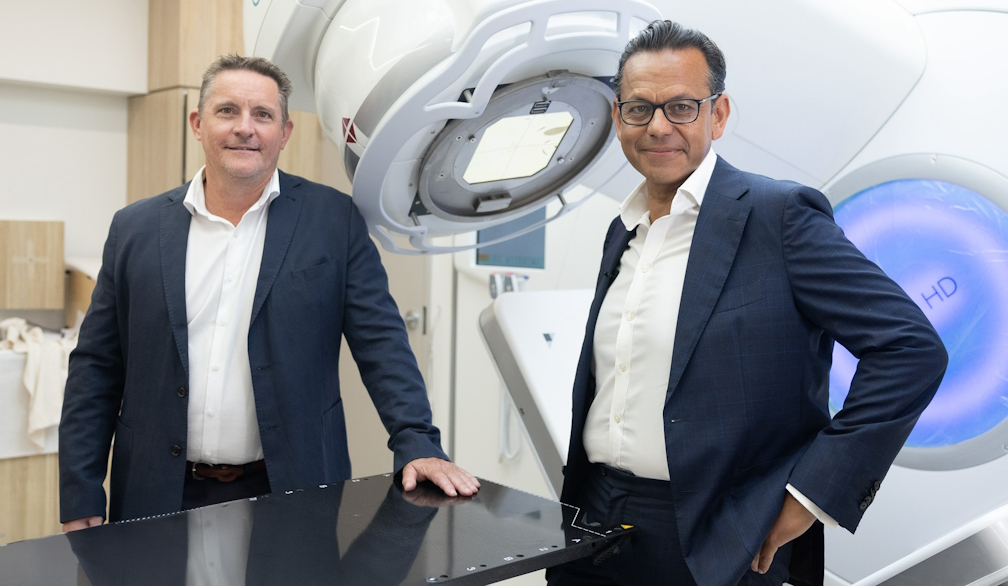Globesity: A 21st Century Silent Pandemic and the Promise of Endoscopic Solutions
- Written by Dr Waqas Fazal

Since the late 20th century, Australia has been grappling with a formidable challenge—obesity. It's a pressing issue that affects one out of three Australians, with 12% of the population living with severe obesity.1 Since 1980, obesity rates have nearly doubled in Australia , earning the country a ranking of 9th worst among OECD nations.2 According to the World Health Organization (WHO), obesity isn't just a pandemic; it's a disease that has plagued our planet for over four decades, showing no signs of abating.
Despite its high prevalence, widespread misconceptions persist regarding the causes of obesity and the availability of innovative solutions such as Endoscopic Sleeve Gastroplasty (ESG), for those currently struggling with obesity. We must engage in discussions about the chronic condition while avoiding terms like "curse" or "strain." This requires a strong and clear understanding of what obesity is, its root causes, and the most effective approaches to treatment. Contrary to common assumption, with resulting stigma and guilt, obesity is not solely a result of poor management of one's diet or an unhealthy lifestyle. Rather, it is a chronic, multifactorial condition defined by excessive adiposity resulting from a complex interaction of genetic, behavioural and environmental factors.
Obesity is associated with numerous other chronic diseases including diabetes, heart failure, and hypertension. It also carries severe psychological consequences including loss of self-esteem and confidence, self-isolation, stigma and, in some cases, even depression. In Australia, the prevalence of depression among obese patients is reported to be 23% in a study of general practice clinics.2
Kerri, a local patient who has personally experienced the trials of obesity, understands these challenges all too well. Her lifelong struggle with fluctuating weight culminated at 105 kilograms, causing her embarrassment, depression, and a sense of demoralisation. Simple daily tasks like taking a walk or bringing herself to go to the gym, became increasingly daunting for her. Looking at the fancy clothes hanging in her closet that she could never bring herself to wear became an emotional drain. Only in her late 40’s, her obesity had already taken a severe toll on her health.
Comprehensive patient care tailored to the needs of the individual, is needed to improve the quality of life of patients with obesity. Treatment requires a change of lifestyle and commitment to a proper diet and regular physical activity. However, it’s imperative to change the approach to the illness as a whole for any real change to have an impact.
Beyond the basic and most important ‘lifestyle change’, the management of obesity for decades has been restricted to just 2 options: medications and surgery. The gap between both is tremendous, with most people either not tolerating the meds or not qualifying for the surgery. Of those who qualify, only 1% end up undergoing bariatric surgery! According to research, a fear of the surgery, resulting scars, the post-operative process and costs are amongst the top factors that adversely affect patients’ desire to pursue surgery. It is hence the need of the hour that newer and effective weight loss therapies become available to the masses.
That’s where newer endoscopic and minimally invasive procedures like Endoscopic Sleeve Gastroplasty (ESG) are helping. ESG enables patients to feel fuller for longer, with less food intake, and facilitates clinically meaningful weight loss. ESG has a lot of promise in filling the gap between medications and surgery.
The Apollo ESG™ System was authorised by the FDA in July 2022. The OverStitch™ Endoscopic Suturing System recently received CE Marking, specifically for the Endoscopic Sleeve Gastroplasty. It is the first and only device to be cleared specifically for ESG via CE Mark criteria, signifying that it has been assessed to meet high safety, health, and environmental protection requirements. Clinical trial results from the MERIT study on the efficacy of the procedure, were published in the scientific journal, The Lancet in July 2022.
After several unsuccessful attempts to lose weight and a life of yo-yo dieting, Kerri finally found the right solution for her and decided to undergo Endoscopic Sleeve Gastroplasty. Nine months after her ESG procedure, Kerri has lost over 15kg and has a new, positive outlook on life. While she knows her journey is ongoing, her entire outlook on her future has changed. She now exercises every day and wears clothes that she was unable to wear previously. Most importantly, she feels good in her own skin and can walk with her head held high.
Kerri’s personal journey and struggle against obesity is a very good representation of what millions of people with obesity are going through. It also highlights that newer, more efficient and less invasive procedures like ESG are bringing about a real change in the lives of people living with obesity.
1: Institute of Health & Welfare, Overweight and obesity.
2: Carey M, Small H, Yoong SL, Boyes A, Bisquera A, Sanson-Fisher R. Prevalence of comorbid depression and obesity in general practice: a cross-sectional survey. Br J Gen Pract 2014;64(620): e122–7







